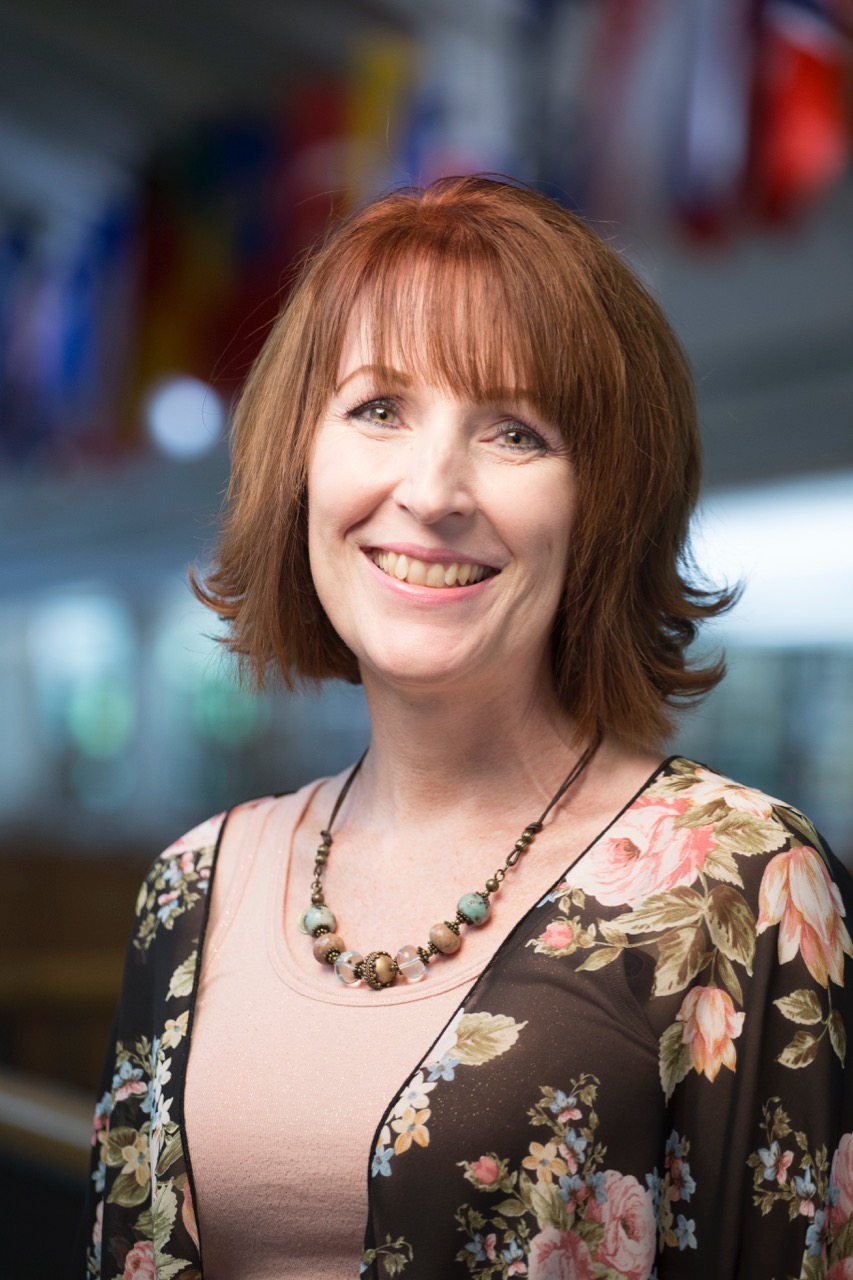The Drury Leadership Collaborative – formerly the Center for Nonprofit Leadership – launched this fall as a way to advance the vision of the College of Graduate Studies in developing responsible leaders who aspire to thrive within their professions and service activities. The Leadership Collaborative is home to graduate-level academic programs, events, and initiatives that support leadership development through the integration of theoretical and practical knowledge.
We asked Dr. Lori Slater, the Center’s inaugural director, to talk about this umbrella initiative and the ways in which it both differs from and continues the mission of the former Center for Nonprofit Leadership.
which it both differs from and continues the mission of the former Center for Nonprofit Leadership.
Question: Why did Drury decided to broaden the focus of the Leadership Collaborative beyond the nonprofit sector?
Lori Slater: The center has always had a focus on leadership, but we saw a greater need to train leaders and knew that we could be innovative in our response to those needs. One of the guiding beliefs at Drury, in part, is to drive positive change. As we reflected on the success we’ve had developing and supporting leadership in the nonprofit sector, we believe we can be equally as successful in other areas of leadership as well.
Q: Is the Leadership Collaborative leaving its nonprofit roots behind?
LS: Not at all! We have the Master of Nonprofit and Civic Leadership degree program, which launched five years ago and continues its strong enrollment record. As we have evolved into the Leadership Collaborative, we have added a 12-credit-hour Nonprofit Leadership Certificate. This certificate allows more flexibility and options for students. And, of course, we have the annual nonprofit conference coming up on Oct. 30 and we will continue that tradition and focus each year.
Q: So, with the focus now squarely on leadership, what are some of the other areas of study in which current and future leaders can focus through the Collaborative?
LS: One of the areas that is really taking off right now is the Public Service and Safety Leadership master’s degree. That program just launched and it’s been so popular right out of the gate that we’ve even set up a second cohort that starts in January. The current students are really pleased with this program so far. Get your app in now if you’re interested! We have a certificate in Public Safety in addition to the master’s degree and that’s a great example of a topic that can overlap with our traditional strength in the nonprofit sector.
I’m really also very excited about the Master of Integrative Leadership. Think of this program as a modular master’s degree. You can choose two 12-hour certificates from a list of six, and then take two “connector” courses that are essentially in-depth projects tailored to your combined areas of study or professional needs.
Q: You mentioned certificates … what are those all about?
LS: This is a great example of how we are being innovative in our thinking about leadership. These certificates can be taken as stand-alone or combined into the Master of Integrative Leadership, as I noted. Imagine someone in leadership working in a nonprofit, combining a certificate in Nonprofit Leadership with a certificate in Data Leadership! We often have someone that has a degree in one or the other, but not well prepared in both. So, having a leader that understands two important components of leadership is incredibly valuable.
An individual might be in a leadership position, or trying to move into a leadership position, and need specific knowledge. This is where a certificate in an area like our Business Ventures Leadership would be beneficial. Maybe they don’t want or have time for an entire MBA, but a four-course certificate would meet their needs. Then, if they want to expand on that certificate later to obtain that full master’s degree, they can certainly do so. We’re continually working on more options for degrees and certificates as we work with the community and business leaders to evaluate what other needs are out there.
Q: What is your role in all of this as new director?
LS: One of my key roles as the director – and the one I get most excited about – is advising students and helping guide them in deciding on their best path. This is another one of those really strong areas for Drury. We have faculty advisors who work one-on-one with students to ensure they are in the best programs to fit their personal and professional goals. So, I’m going to advise students through their program, I might teach a class they’re in, and then I might put their master’s hood on them at graduation. That is exciting to me!
Another part of my role is identifying and developing those new degrees and certificates previously mentioned. So, working with the community to identity needs is important – it is important in serving our students and it is important for Drury to be in that role.
The other big piece for me is the Nonprofit Leadership Conference on Oct. 30! Planning, preparing, and executing a conference is a lot of work, but is also a lot of fun. This year is our first ever taking it virtual, but it is going to be an exceptional conference.
